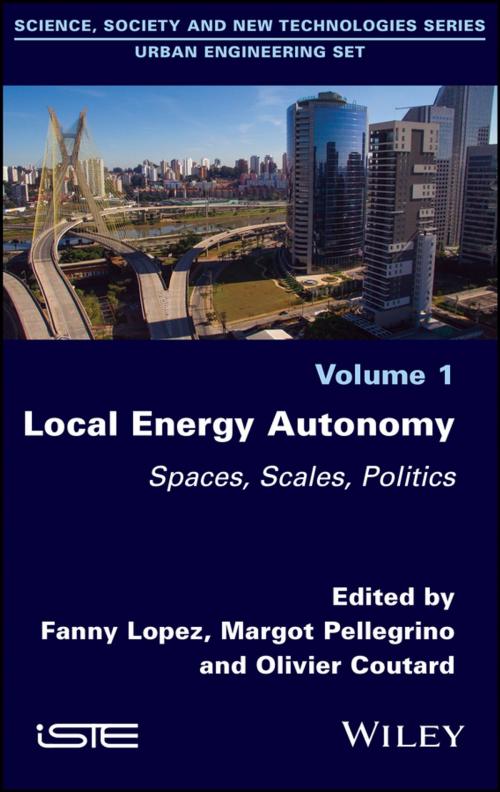Local Energy Autonomy
Spaces, Scales, Politics
Nonfiction, Science & Nature, Science, Physics, Energy| Author: | ISBN: | 9781119616252 | |
| Publisher: | Wiley | Publication: | April 26, 2019 |
| Imprint: | Wiley-ISTE | Language: | English |
| Author: | |
| ISBN: | 9781119616252 |
| Publisher: | Wiley |
| Publication: | April 26, 2019 |
| Imprint: | Wiley-ISTE |
| Language: | English |
In recent years, interest for local energy production, supply and consumption has increased in academic and public debates. In particular, contemporary energy transition discourses and strategies often emphasize the search for increased local energy autonomy, a phrase which can refer to a diverse range of configurations, both in terms of the spaces and scales of the local territory considered and in terms of what is meant by energy autonomy.
This book explores policies, projects and processes aimed at increased local energy autonomy, with a particular focus on their spatial, infrastructural and political dimensions. In doing so, the authors – Sabine Barles, Bruno Barroca, Guilhem Blanchard, Benoit Boutaud, Arwen Colell, Gilles Debizet, Ariane Debourdeau, Laure Dobigny, Florian Dupont, Zélia Hampikian, Sylvy Jaglin, Allan Jones, Raphael Ménard, Alain Nadaï, Angela Pohlmann, Cyril Roger-Lacan, Eric Vidalenc – improve our understanding of the always partial and controversial processes of energy relocation that articulate forms of local metabolic self-sufficiency, socio-technical decentralization and political empowerment.
Comprising fifteen chapters, the book is divided into four parts: Governance and Actors; Urban Projects and Energy Systems; Energy Communities; and The Challenges of Energy Autonomy.
In recent years, interest for local energy production, supply and consumption has increased in academic and public debates. In particular, contemporary energy transition discourses and strategies often emphasize the search for increased local energy autonomy, a phrase which can refer to a diverse range of configurations, both in terms of the spaces and scales of the local territory considered and in terms of what is meant by energy autonomy.
This book explores policies, projects and processes aimed at increased local energy autonomy, with a particular focus on their spatial, infrastructural and political dimensions. In doing so, the authors – Sabine Barles, Bruno Barroca, Guilhem Blanchard, Benoit Boutaud, Arwen Colell, Gilles Debizet, Ariane Debourdeau, Laure Dobigny, Florian Dupont, Zélia Hampikian, Sylvy Jaglin, Allan Jones, Raphael Ménard, Alain Nadaï, Angela Pohlmann, Cyril Roger-Lacan, Eric Vidalenc – improve our understanding of the always partial and controversial processes of energy relocation that articulate forms of local metabolic self-sufficiency, socio-technical decentralization and political empowerment.
Comprising fifteen chapters, the book is divided into four parts: Governance and Actors; Urban Projects and Energy Systems; Energy Communities; and The Challenges of Energy Autonomy.















